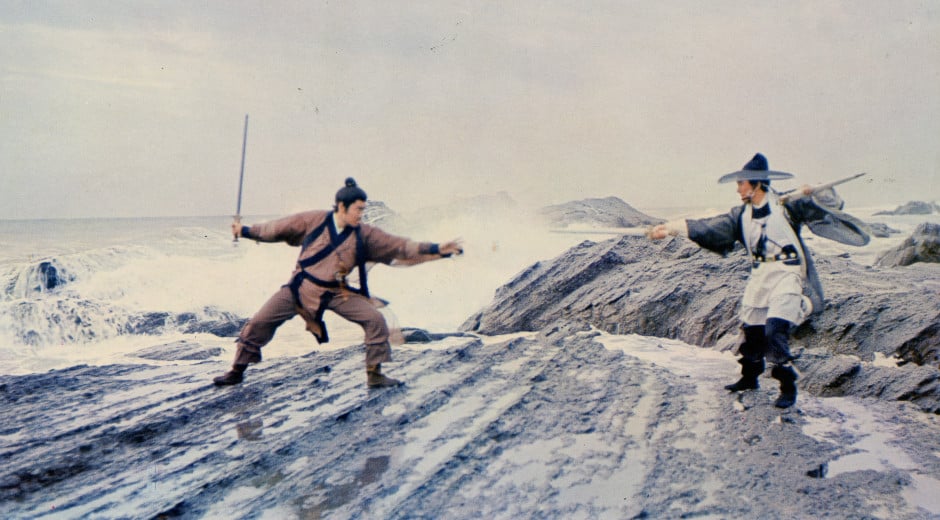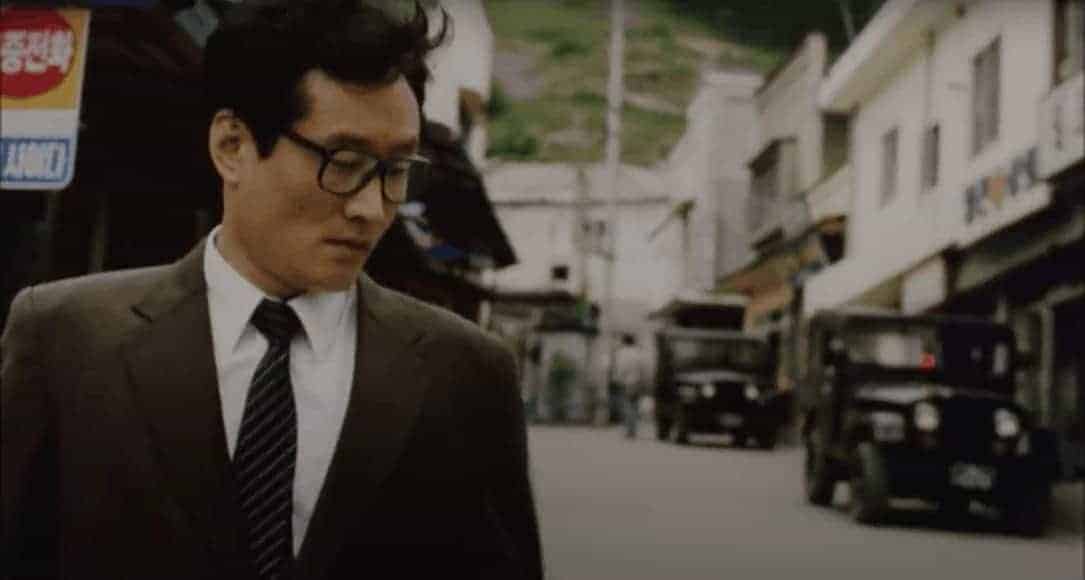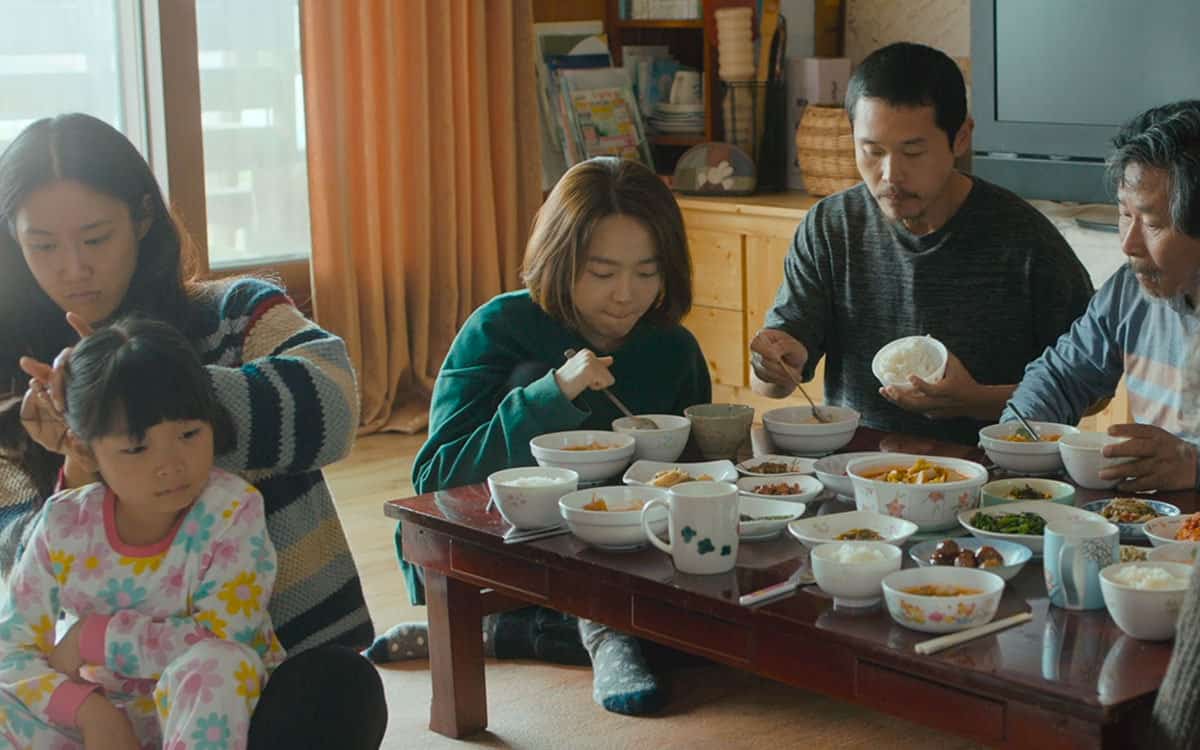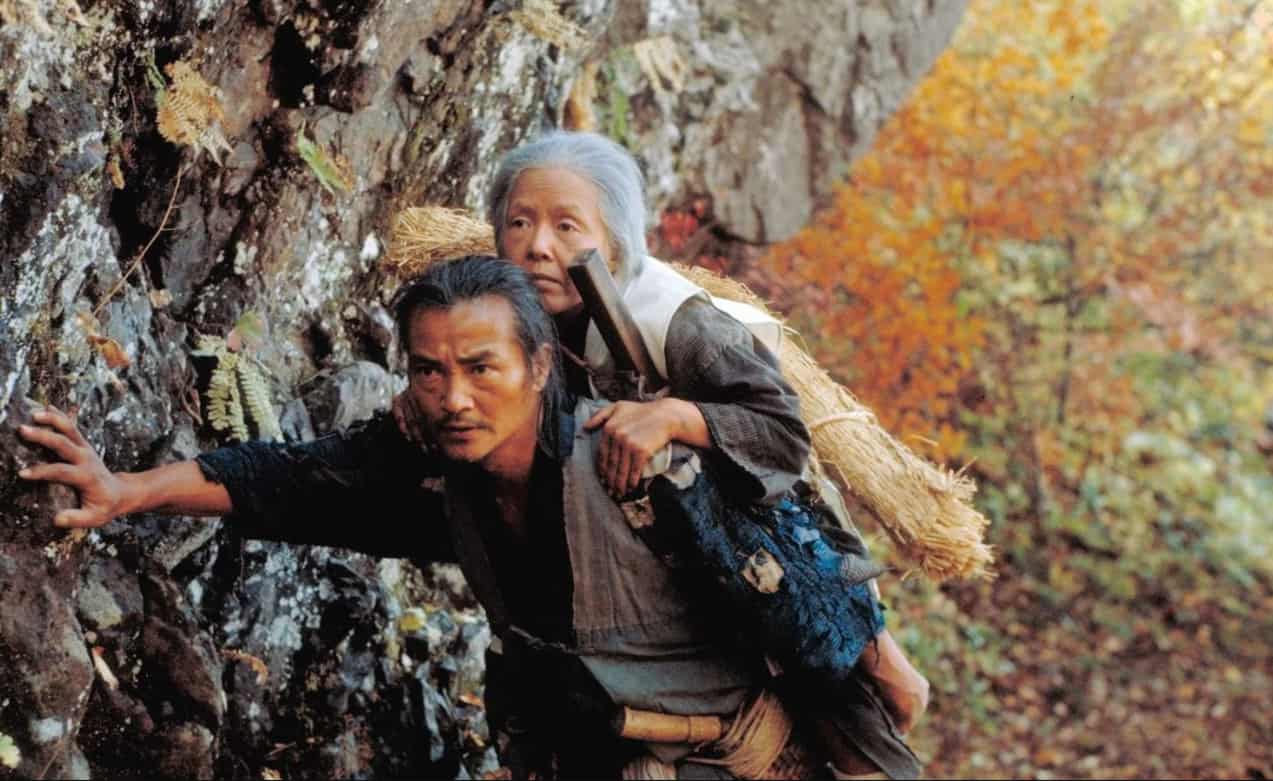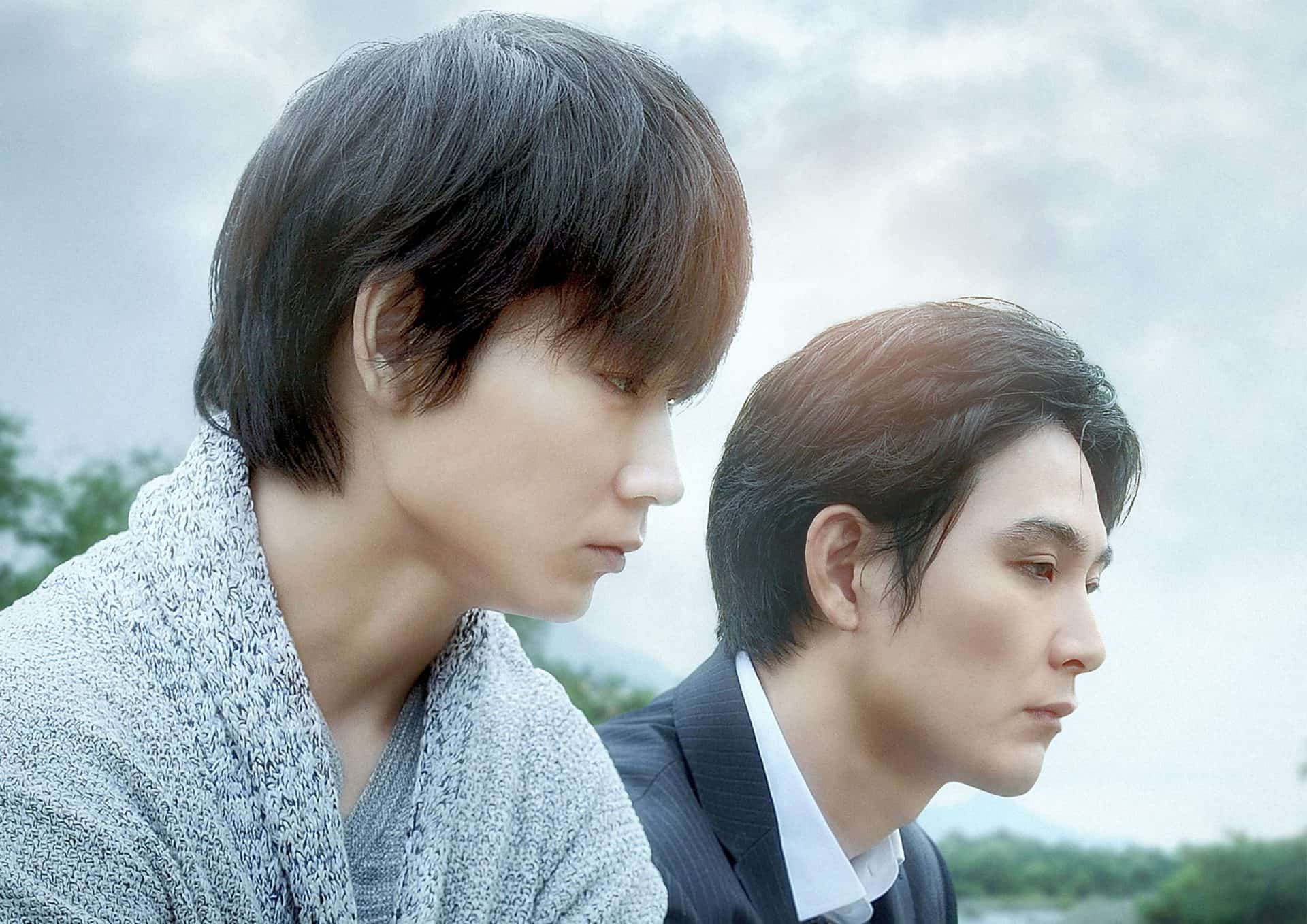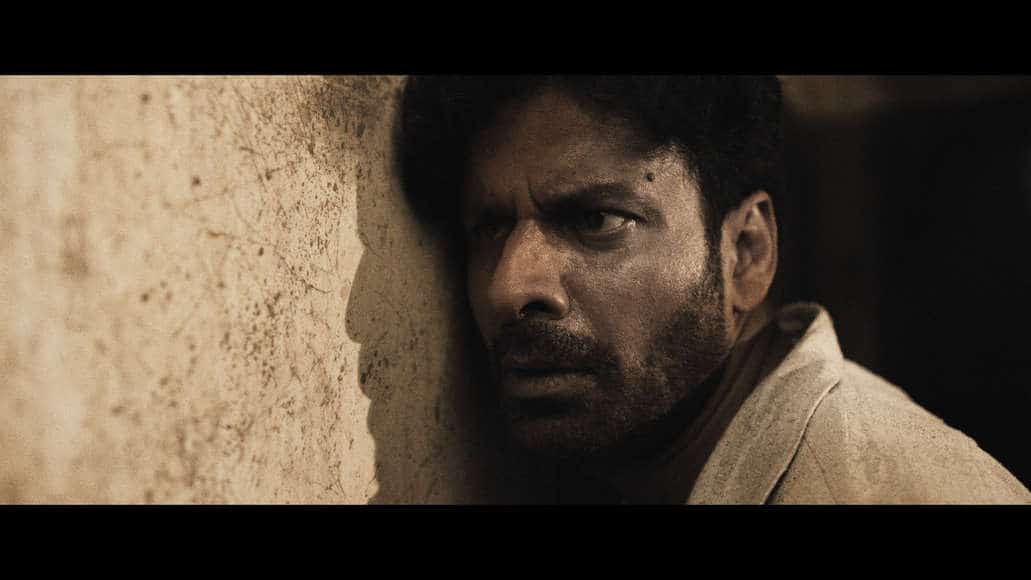Having been one of the contributors to the script for King Hu's “Come Drink With Me” while also serving as an assistant director for Hu himself, it should come perhaps as no surprise Taiwanese filmmaker Ting Shan-hsi would follow in the same tradition as his mentor. In the busy 1970s world of wuxia, he created several entries within the genre, with an astonishing nine feature films under his belt three years after his debut. As it also became obvious, the genre needed to explore further territories, with some of its conventions feeling stale and predictable, Shan-hsi decided it was about time to venture into fantasy and other genres. “The Ghost Hill” is the result of this tendency to spice up the wuxia conventions, with some elements indeed working to its advantage, while others not working quite as well.
The Ghost Hill is screening at Old School Kung Fu Fest
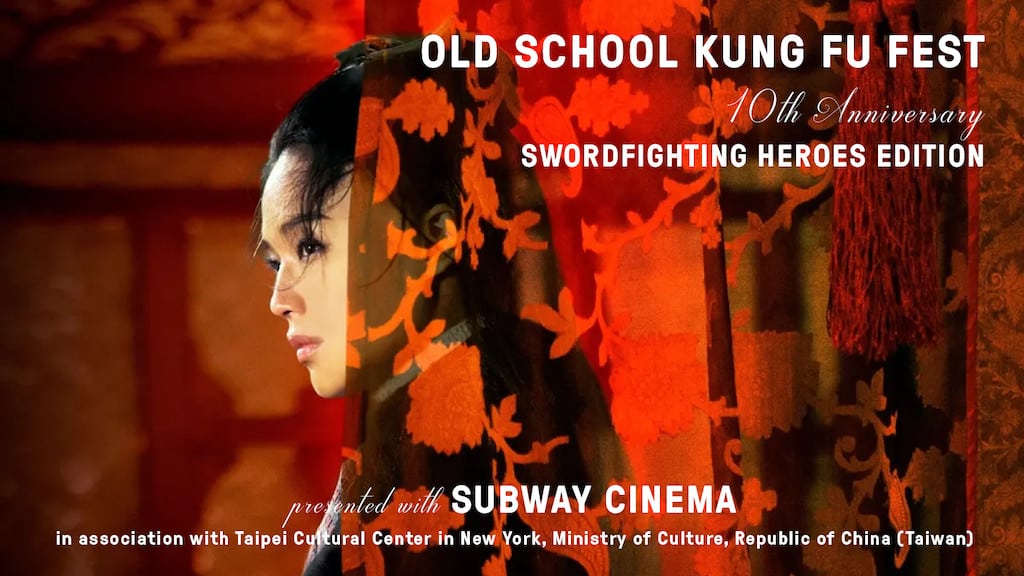
For twenty years, sword fighters Tsai Ying-chieh (Tien Peng) and Peng Jun-fung (David Tang Wei) have been training to become the best. In order to decide who will be the new owner of the mighty Purple Light Sword, they have to duel with the latter seeing himself as the winner. Much to their surprise, the sword decides it is Peng who has won the fight, as Tsai's fighting technique was far inferior to his opponent's, which he begrudgingly admits to while also swearing he will do everything in his power to get the sword and prove he is the better fighter.
Meanwhile, Peng is now able to fulfil his duty as a son and avenge the death of his father, as the magical sword is the right weapon to defeat his next opponent, a blind master who has become nearly indestructible. As he is about to approach what is perhaps the most important battle of his life, he realizes someone has already done the deed and has set his sights on him, as well as Tsai, who has been following him. Because he sees both fighters as potential threats to his dominion, the evil King Jin (Hsueh Han) has come up with a plan which will eventually see them duel each other once again in a fight to the death.
For those viewers with a predilection for a more “adventurous” take on wuxia, “The Ghost Hill” is certainly a feature which offers a lot of entertainment. From ice prisons to fiery pits, to a villain who owns a deadly harpoon gun and bathes in boiling oil, there are many elements making Ting Shan-hsi's venture into the genre a great viewing experience. The sets and costumes offer a lot of visual “candy” as well, with especially King Jin, his band of assassins, and their “colorful” weapons” adding to the overall flair of “The Ghost Hill”.
Nevertheless, despite all of these visual and technical aspects, the story itself does not differ that much from what you already know from the genre. In fact, the aforementioned points make the narrative even feel more convoluted, with some scenes appearing like they serve no purpose apart from introducing the next fantastic/ outlandish concept. On the other hand, when the feature focuses on the aspects the genre is famous for, for example, the fighting scenes, it shows its true qualities. The opening sequence alone is quite inventive, using quick flashbacks to prove the superiority of Peng, and also one of the best displays for the two main actors, as both of them highlight their thirst for competition and their willingness to prove who is the best fighter.
In the end, “The Ghost Hill” is a wuxia with a lot of fantastic elements. Ting Shan-hsi's feature is directed at audiences who like new or unusual elements in their viewing experiences, while also respecting conventions of wuxia, as evident in the fight scenes.


